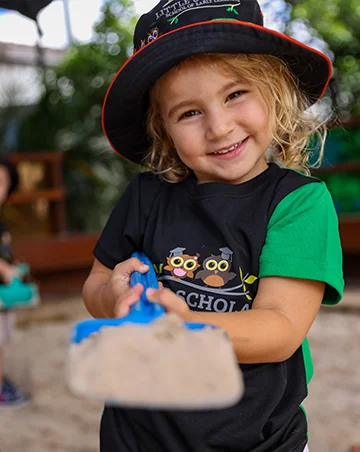Have you ever wondered how the books your children read can influence their growth and development? If not, you’re not alone, and it’s never too late to start paying attention. As parents, we all wish for our children to grow up as thoughtful, intelligent, resilient, and kind individuals. Regardless of their gender, we want to create equal opportunities and experiences that will shape their future through formal education and into adulthood. At Little Scholars, we understand that our actions today in educating and caring for children have a profound impact on the future, no matter how big or small they may seem, and that includes the books we share.
The power of books in shaping children's identity
There’s been a lot of research looking at how children’s books portray gender identity and equality. For example, a recent 2021 study titled “Gender equity in early childhood picture books: a cross-cultural study of frequently read picture books in early childhood classrooms in Australia and the United States” dug deep into the representation of gender in commonly-read picture books across eight early learning centres in both countries. The study involved 44 educators and 271 children, and its findings shed light on the impact of gender bias in literature on young children.
The impact of gender bias in picture books
The research revealed that gender bias in literature such as picture books can have significant effects on children’s beliefs and attitudes. Boys may develop a sense of entitlement, while girls’ self-esteem and occupational aspirations may suffer. As well, these books can inadvertently teach children that girls are of lesser value than boys. Even a 2016 report by UNESCO found persistent gender bias in textbooks, which can negatively affect girls’ motivation, self-esteem, and participation in school, possibly limiting their career expectations.
The study carefully examined the themes and messages conveyed by the books (not named), both overt and subtle, in relation to gender and gender roles. It considered language, illustrations, emotions, attitudes, needs of characters, as well as activities, roles, and relationships portrayed in the stories.
- Language and Details: The researchers looked at the use of gender-specific or neutral names, pronouns, and labels, along with language related to characters’ roles, appearance, occupations, and personality traits. For instance, females may be described or portrayed as beautiful, nurturing, or dependent, while males are shown as powerful, clever, or independent.
- Illustrations: Clothing worn by characters, their positioning on the page, and the activities they engage in were also analysed. These aspects contribute to shaping the image of gender roles in children’s minds.
- Emotions, attitudes, and needs: The study examined how female characters are often portrayed as passive, emotional, and dependent on males to solve problems, while male characters are shown as strong and competent.
- Activities, roles, and relationships: The portrayal of characters within a family dynamic was examined, including the division of household and career responsibilities between gender
Another study, Children’s Book Illustrations: Visual Language in Picture Books, includes a section that discusses character development through illustration, and touched on character’s gender preference. While one study referenced from 2011 revealed male characters outnumbering female in picture books, some illustrators who were interviewed stated that about 20 years ago, the situation was reversed and there was a significant push for including more male characters into picture books to encourage boys to read more.
If this has you thinking about some of the books, often classics, that you have in your home and that you’ve read with your child, we don’t want you to feel guilty as you view them with a new lens! The next time you read them, it’s an opportunity to have a discussion about the book – why you love it, perhaps what might be outdated thinking, and that can spur on some wonderful conversations about gender equality that would serve boys and girls well.
The positive effects of empowering literature for girls
It’s not all doom when it comes to children’s literature and the effect they can have on children! In recent years, there has been significant research and evidence that shows how children’s books that empower young girls can have a positive impact on their development and self-esteem as they grow. Here are some key points supported by research:
- Building confidence: Empowering children’s books often feature strong and capable female protagonists who overcome challenges. These characters can serve as role models, inspiring girls to believe in themselves and their abilities.
- Expanding imagination: Books with diverse and empowering female characters open up a world of possibilities for young girls. They can envision themselves in various roles and careers, fostering a sense of ambition and creativity.
- Promoting resilience: Stories that depict girls facing and overcoming adversity teach valuable lessons in resilience and determination. This resilience can be carried into real-life situations as they encounter obstacles and setbacks.
- Encouraging leadership: Many empowering books showcase girls taking charge and leading in different scenarios. Such examples can encourage girls to develop leadership qualities and take on leadership roles in their lives.
- Breaking stereotypes: Empowering books often challenge traditional gender stereotypes, promoting inclusivity and diversity. This exposure helps girls develop open-mindedness and acceptance of others, regardless of gender or background.
- Improving language skills: Reading and engaging with empowering stories enhance language and communication skills. A richer vocabulary and improved language comprehension can positively impact a girl’s performance in school.
- Fostering critical thinking: Empowering stories often present complex themes and moral dilemmas. This encourages young girls to think critically, analyse situations, and consider different perspectives.
- Enhancing emotional well-being: Reading about characters who navigate emotions and develop coping mechanisms can help young girls manage their own feelings and emotions effectively.
- Promoting a lifelong love for reading: Engaging and empowering stories create a positive association with reading. Girls who enjoy reading are more likely to continue this habit throughout their lives, leading to lifelong learning and personal growth.
By bringing empowering children’s books into their ‘reading diet’, parents, educators, and caregivers can play a significant role in shaping the confidence, aspirations, and character of young girls. These books have the potential to leave a lasting impact, contributing to a more empowered and equitable generation of women in the future.
Books that promote female positivity
There are so many wonderful books that do support female positivity, gender equality and encourage young girls to break any glass ceilings that get in their way. But, we encourage young boys to enjoy these books, and parents to have similar conversations with all children – we can’t change the future without acknowledging the past and making change now. Here’s 10 empowering books we’ve chosen, but please let us know if there are more you think we should have in our campuses! (and where we could, we’ve linked to Gold Coast and Brisbane Libraries!)
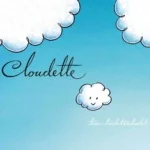
Cloudette by Tom Lichtenheld
Sometimes being small can have its advantages. But what about when you want to do something big, like help a giant garden grow, or make a brook babble? This charming book gets at the heart of what it means to make a difference no matter your size. Young children will find much to relate to as they follow Cloudette on her pursuit for greatness.
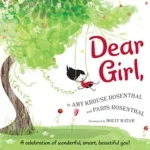
Dear Girl by Amy Krouse Rosenthal and Paris Rosenthal
This book serves as a love letter written for the special girl in your life; offering a gentle reminder that she’s powerful, strong, and holds a valuable place in the world.
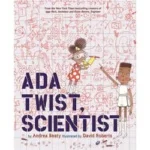
Ada Twist, Scientist by Andrea Beaty
Ada Twist is a story about the power of curiosity in the hands of a child who is on a mission to use science to understand her world. This book is a celebration of STEM, curiosity, perseverance, and passion.
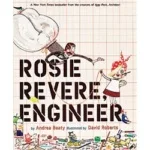
Rosie Revere, Engineer by Andrea Beaty
Ok, we couldn’t choose between these two Beaty books. Both scream ‘you can do anything’ which is exactly what we want our children to believe after reading books. These books, besides their important messages, also have great flow, rhyming and expressions, making them fun for parents to read out loud (over and over)
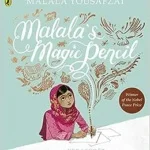
Malala’s Magic Pencil by Malala Yousafzai
Malala Yousafzai, the youngest recipient of the Nobel Peace Prize shares a story from her childhood in Pakistan that shows younger readers the world view that allowed her to hold on to hope even in the most difficult of times
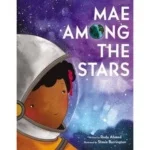
Mae Among the Stars by Roda Ahmed
Inspired by the life of Mae Jemison, the first Black woman to travel in space, this beautiful picture book will encourage young girls to reach for the stars, to aspire for the impossible, and to persist with childlike inspiration
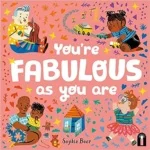
You’re Fabulous As You Are by Sophie Beer
This new book celebrates gender expression in all forms, whether it’s wearing sparkly tutus or stomping around in big black boots, to having messy fun or needing quiet time.
You’re Fabulous As You Are tells children it’s okay to choose any colour or change your mind, and encourages them to be completely and unashamedly their fabulous selves.
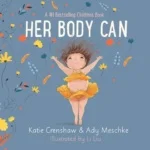
Her Body Can by Kate Crenshaw
Her Body Can is a book of self-love and body positivity declarations for all young girls. Its aim is to encourage our young girls to love themselves and their bodies for exactly who and what they are.
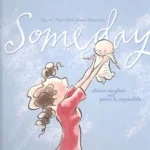
Someday by Alison McGhee
Someday is the story of what every mother wishes for her child: a chance to live life at its fullest to experience great joys, to stretch, to grow, to understand sorrow, to have a future to have a someday.
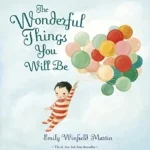
The Wonderful Things You Will Be by Emily Winfield Martin
From brave and bold to creative and clever, this book celebrates all personalities and their potential.
As parents, educators, and caregivers, we can choose books that promote equality and challenge gender stereotypes. By offering children a diverse range of literature, we can empower and encourage them to become open-minded, respectful, and compassionate individuals. At Little Scholars, we are committed to fostering an inclusive environment and nurturing a generation that values equality and embraces each person’s unique potential.
Further research
- Gender stereotypes and representation of female characters in children’s picture books, Paynter, Kelly Cris, 2011
- Children’s book illustrations: Visual language of picture books, Hladikova, Hana


